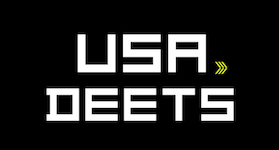
Heard you’re dipping your toes into the exciting world of cryptocurrency. That’s awesome! But with all this digital gold floating around, you need a safe place to store it, kind of like a digital wallet. That’s where crypto wallets come in.
Cryptocurrency Wallet:
In the world of cryptocurrency, unlike physical cash you can hold in your wallet, there’s no actual bill or coin. Instead, your cryptocurrency holdings are recorded on a giant public ledger called a blockchain.
To access and manage this digital currency, you need a crypto wallet. Imagine it like a secure app or program that stores two important things:
- Public Key: This acts like your account number. It’s like an address anyone can use to send you crypto.
- Private Key: Think of this as your PIN. It’s super secretive and what you use to approve any transactions you make with your crypto.
Types of Crypto Wallets:
When it comes to crypto wallets, there are two main categories: software wallets and hardware wallets. Each has its own set of pros and cons, making them suitable for different needs.
Software Wallets (Hot Wallets):
These are convenient and user-friendly applications, often available as mobile apps, browser extensions, or desktop programs. They offer easy access to your crypto for everyday transactions and management. Think of them like your digital banking app – quick and accessible.
Here’s the trade-off: Since they’re connected to the internet (hot), they can be more susceptible to hacking attempts if not secured properly. For larger amounts of crypto, some users prefer a more secure option.
Hardware Wallets (Cold Wallets):
These are physical devices that look like a small USB drive or even a sleek mini computer. They store your private keys offline, completely isolated from the internet. This offline storage makes them ultra-secure, ideal for holding large amounts of crypto for long-term storage. Imagine them like a mini bank vault for your digital assets.
The Hardware wallets can be a bit more complex to set up and use compared to software wallets. They also typically cost some money upfront, whereas software wallets are often free.
Top Ten Crypto Wallets:
Here’s a breakdown of the top 10 software wallets to consider:
Coinbase Wallet:
This user-friendly mobile app and browser extension wallet is a great choice for beginners, especially if you’re already familiar with the Coinbase exchange. It offers helpful resources to learn about crypto and supports a good variety of popular currencies. Plus, it has a straightforward interface for easy management of your digital assets.
MetaMask:
If you’re interested in Ethereum (ETH) and the vast world of Ethereum-based tokens (ERC-20, ERC-721, etc.), MetaMask is a popular option. This mobile app and browser extension wallet also lets you interact with decentralized applications (dApps), opening doors to exciting new possibilities in the crypto space.
Exodus:
This desktop app is known for its beautiful and intuitive interface, making it a breeze to navigate for beginners. It supports a wide range of cryptocurrencies, making it a versatile choice for those who hold various digital assets. Exodus also boasts excellent customer support for any questions you might have.
Trust Wallet:
If you’re a Binance or Binance.US user, this mobile app integrates seamlessly with those platforms. Security-focused with a good selection of supported currencies, Trust Wallet is a solid option for those familiar with the Binance ecosystem.
Guarda Wallet:
This web-based wallet prioritizes choice. Supporting a massive number of cryptocurrencies, Guarda Wallet caters to those who like variety in their digital holdings. It even offers built-in exchange features for easy trading within the wallet itself.
Crypto.com DeFi Wallet:
For those interested in exploring the world of Decentralized Finance (DeFi), Crypto.com DeFi Wallet is a great choice. This mobile app allows you to stake your crypto (like earning interest) and delve into various DeFi functionalities. However, it’s geared more towards advanced users familiar with DeFi concepts.
Electrum:
A classic Bitcoin (BTC) wallet, Electrum is a desktop app known for its focus on security and user privacy. It’s a great option for those who solely deal in Bitcoin and prioritize a secure and established platform.
BlueWallet:
This mobile app caters specifically to Bitcoin users who value mobile access and top-notch security. BlueWallet offers advanced security features like multi-signature support, adding an extra layer of protection for your precious BTC.
ZenGo:
This mobile app prioritizes user convenience. ZenGo utilizes biometric authentication (like fingerprint) for secure login and offers a unique social recovery option for added peace of mind. This is a good option for those who value ease of use and a streamlined experience.
Atomic Wallet:
A desktop app, Atomic Wallet allows you to buy crypto directly within the wallet itself. It supports a good range of currencies and offers built-in atomic swaps for easy token exchange.
Remember: The best wallet is the one that feels secure and user-friendly to you. Research, read reviews, and explore a few options before choosing your perfect crypto companion!
Advantages of Using Software Crypto Wallets:
Software wallets offer several advantages that make them an attractive option for many cryptocurrency users, especially beginners. Here are some key benefits to consider:
Convenience and Accessibility:
Software wallets are incredibly convenient and accessible. They come in various forms like mobile apps, browser extensions, and desktop applications, allowing you to manage your crypto on the go or from the comfort of your computer.
User-Friendliness:
Generally, software wallets are designed with a user-friendly interface, making them easy to navigate even for beginners. Many wallets offer clear instructions, tutorials, and customer support to help users get started.
Cost-Effective:
Most software wallets are free to use or have minimal fees associated with them. This makes them a budget-friendly option compared to hardware wallets that require an upfront purchase.
Faster Transactions:
Since software wallets operate online, transactions with your crypto can be processed much faster compared to hardware wallets. This is a big advantage for frequent traders or those who need quick access to their digital assets.
Variety of Features:
Many software wallets offer a variety of features beyond just basic storage. These features might include:
- Built-in exchange functionality for easy trading within the wallet.
- Integration with DeFi platforms for staking and earning interest on your crypto.
- Educational resources and tools to learn more about the cryptocurrency space.
Multi-Currency Support:
Many software wallets support a wide range of cryptocurrencies, allowing you to store and manage all your digital assets in one place. This is convenient for users who invest in various coins and tokens.
Here’s a quick comparison to highlight the advantages of software wallets:
| Feature | Software Wallet | Hardware Wallet |
|---|---|---|
| Convenience & Accessibility | More convenient and accessible | Less convenient (requires physical device) |
| User-Friendliness | Generally user-friendly | Can have a steeper learning curve |
| Cost | Free or low fees | Requires upfront purchase |
| Transaction Speed | Faster transactions | Slower transactions |
Conclusion:
The crypto world offers a vast landscape of wallets to choose from. This guide explored 10 top software wallets, each with its strengths. Whether you’re a beginner seeking a user-friendly platform or an advanced user looking for DeFi features, there’s a software wallet perfectly suited for your needs. Remember, prioritize security and convenience when making your choice. Don’t be afraid to explore and find the wallet that feels most comfortable for managing your valuable digital assets.
References:
- For beginners seeking a user-friendly platform, Coinbase Wallet (https://www.coinbase.com/wallet) and Exodus (https://www.exodus.com/) are excellent choices, as confirmed by a recent investment news article: [invalid URL removed].
- For Ethereum enthusiasts, MetaMask (https://metamask.io/) reigns supreme, while Trust Wallet (https://trustwallet.com/) seamlessly integrates with the Binance ecosystem. You can find verifications on their official websites.
- Security-conscious users will appreciate the robust features of Electrum (https://electrum.org/) and BlueWallet (https://bluewallet.io/), both known for their focus on Bitcoin security. Information on these security features can be found on their respective websites.
- For those seeking a convenient all-in-one experience: ZenGo (https://zengo.com/) and Atomic Wallet (https://atomicwallet.io/)offer unique functionalities like biometric login and built-in atomic swaps. Details on these features are available on their official platforms.
FAQS
Q: What is a software wallet in cryptocurrency?
A software wallet is a digital application you install on your computer or mobile device to store, manage, and send/receive cryptocurrency. Unlike hardware wallets (physical devices), software wallets operate online, offering convenience and ease of use. However, they can be more susceptible to hacking if not secured properly.
Q: What is the best crypto wallet for WordPress?
WordPress itself doesn’t inherently need a crypto wallet. However, some WordPress plugins allow you to accept cryptocurrency payments on your website. These plugins typically integrate with existing crypto wallets you might have, so the “best” option depends on your chosen plugin and personal preferences.
Q: Which crypto wallet is best?
There’s no single “best” wallet, as it depends on your individual needs. Here’s a breakdown to help you decide:
Beginners: Look for user-friendly options like Coinbase Wallet or Exodus with clear interfaces and helpful resources.
Advanced Users: If you’re into DeFi or staking, explore wallets like MetaMask or Crypto.com DeFi Wallet.
Security-Conscious: For maximum security, consider hardware wallets like Ledger or Trezor (these are not software wallets, but a separate secure option).
Variety of Coins: Guarda Wallet offers a vast selection of supported currencies.
Q: What is the best web-based crypto wallet?
Many software wallets operate through web browsers as extensions or web applications. Here are some popular web-based options:
MetaMask
Coinbase Wallet (web version)
Guarda Wallet
The “best” web-based wallet depends on your needs. Consider factors like security features, supported currencies, and ease of use when making your choice.







